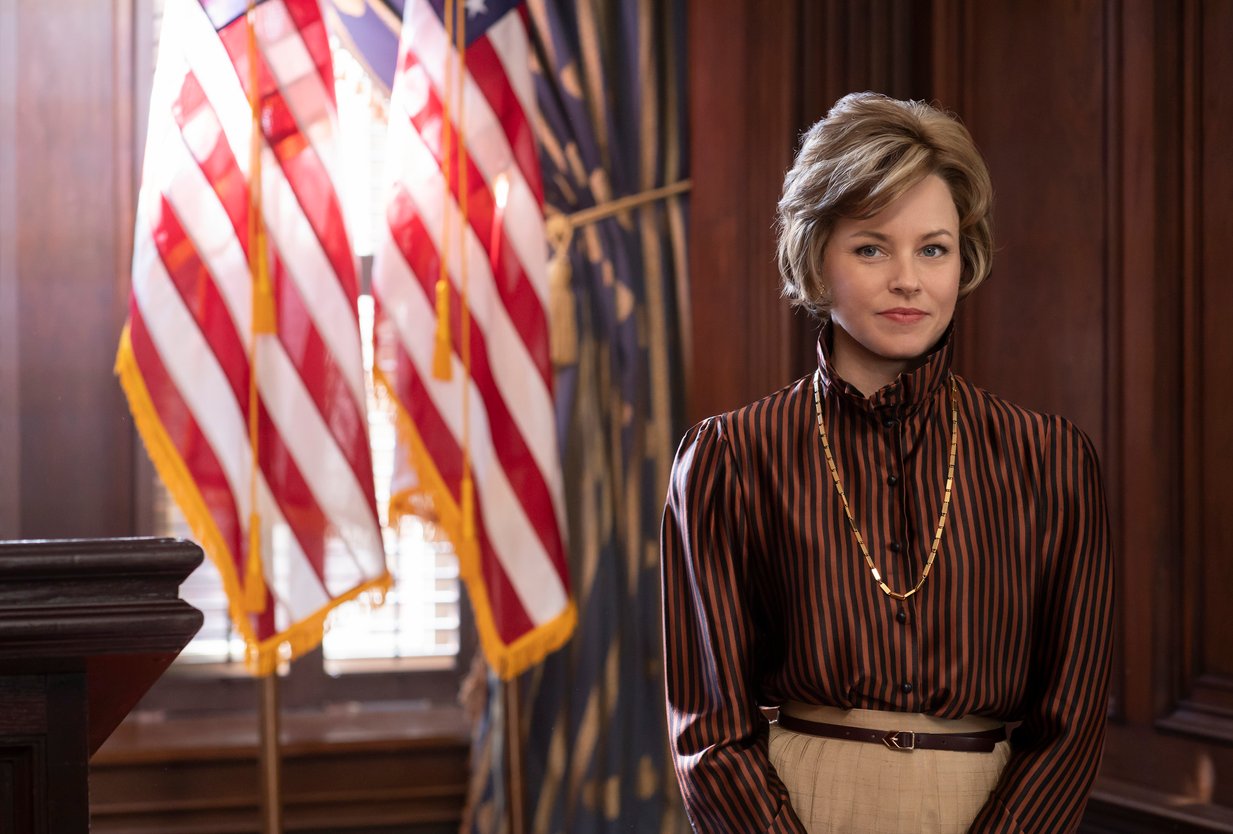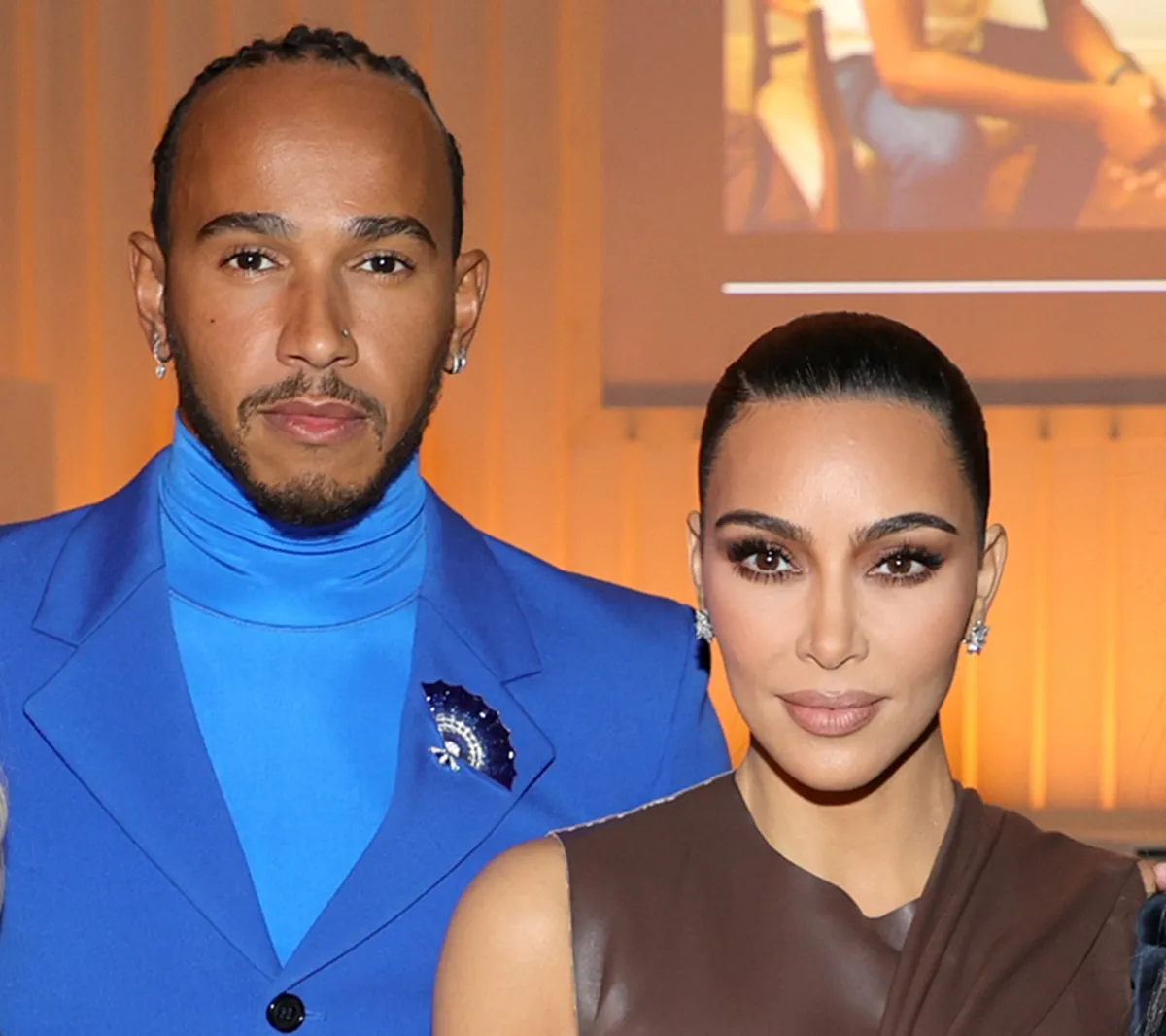‘Mrs. America’: Was Elizabeth Banks’ Jill Ruckelshaus Really a Republican Feminist?
One the most recent episode of FX on Hulu’s Mrs. America, Jill Ruckleshaus, portrayed by Elizabeth Banks, is at the center of the episode. Was this feminist activist, shown to be a Republican, actually a conservative and a supporter of women’s rights as she is depicted in the limited series?
Headlined by Cate Blanchett as anti-feminist activist Phyliss Schlafly, the series focuses the battle to ratify the Equal Rights Amendment through the eyes of both the women who are aligned with Schlafly and second-wave feminists (portrayed by Rose Byrne, Uzo Aduba, Margo Martindale, Tracy Ullman, and more).

Jill Ruckelshaus as portrayed by Elizabeth Banks in ‘Mrs. America’
More so in the background in the episodes prior to “Jill,” Banks’ Ruckleshaus is primarily in the background of the action. We don’t know entirely too much about Ruckelshaus, only that she is a Republican feminist who founded the National Women’s Political Caucus with Bella Abzug (Martindale), Shirley Chisholm (Aduba), Betty Friedan (Ullman), Gloria Steinem (Byrne), and others, spearheading most of the organization’s political outreach.
However, in the most recent episode, Ruckelshaus is at the forefront and we get a good idea of her involvement in the movement. She is shown to be allied with Betty Ford, who actually supported the ratification of the ERA as a Republican First Lady. Ruckleshaus comes directly in conflict with Schlafly and Republicans who supported Ronald Reagan as opposed to Ford. She is also shown to be the subject of sexual harassment in her attempts to sway lawmakers to support the ERA.
The Republican National Convention ended up supporting the ERA at their 1976 convention, despite the protests of Schlafly and her camp. However, though Ruckleshaus supported abortion rights, the RNC reiterated its stance of being against abortion.
Ruckleshaus in real life
As depicted in the series, Ruckleshaus was a moderate Republican who supported feminist ideals. In real-life, however, Ruckleshaus was a mostly little-known figure and was not at the forefront like her contemporaries. While a lot of Ruckelshaus’ views and activities in the series are based in fact, the show does take a few liberties with a few events, such as a fictional meeting between Rucklesahus and Schlafly.
She was an advisor to several presidents on women’s rights and helped push their agenda. Ruckelshaus especially worked alongside First Lady Ford, as shown in the series, and First Lady Rosalynn Carter, to advocate for women’s rights. Though the Republican Party initially supported the ERA, it began to back away from it. Ruckleshaus was not having that and led a protest of thousands of ERA supporters outside the 1980 Republican National Convention. “My party has endorsed the Equal Rights Amendment for 40 years. Dwight Eisenhower endorsed ERA. Richard Nixon endorsed ERA. Gerald Ford endorsed the ERA. But something happened in Detroit last week. Give me back my party,” she said.
Though she served as the commissioner for the U.S. Commission on Civil Rights under Reagan, Ruckleshaus says she was “fired for not being Republican enough.” She said that she didn’t think there was enough attention on race issues.
Ruckleshaus told C-SPAN in a 2005 interview with her husband, “I disagreed with some of the social policies during the Reagan administration. I didn’t think there was enough emphasis on Civil Rights issues, black and white disparities. And the Civil Rights Commission had historically always been aimed in that direction, and during the time I served, the majority party, then the Republicans, the presidential party, was the majority in the Civil Rights commission, and we weren’t doing what I thought we ought to be doing, which was addressing those issues.”
Mrs. America airs new episodes each week via FX on Hulu.


